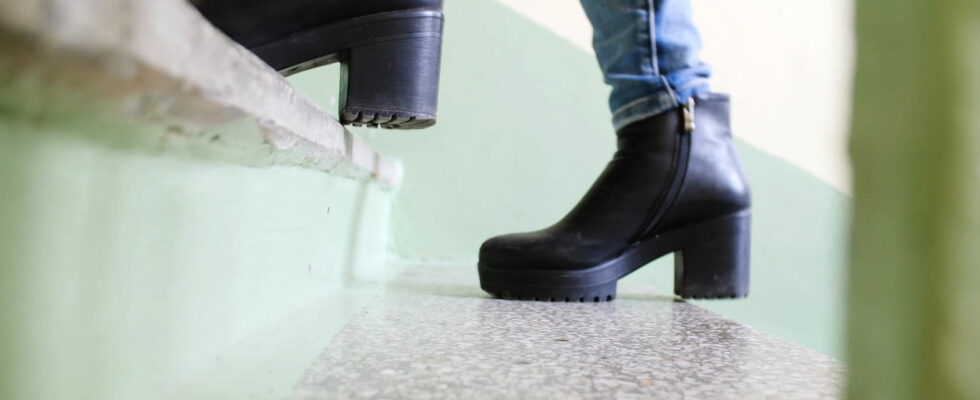Being out of breath when going up the stairs happens to everyone. But if this happens too often, a medical consultation is necessary.
Shortness of breath, called “dyspnea” in medical jargon, is characterized by the feeling of having difficulty breathing. This is a very common reason for consultation in cardiology. Most often, shortness of breath during exercise is not serious. Indeed, it is normal for the frequency and intensity of breathing to increase during exercise or physical activity. “When we are out of breath while going up the stairs, we immediately think of a cardiological problem even though the causes of shortness of breath are multiple and most often benign”immediately reassures Dr. Claude Kouakam, cardiologist at the Heart and Lung Institute of Lille University Hospital. So when to worry?
You can be out of breath without it being serious because you have gained weight (5 to 10 kilos for example), after a long period of bed rest, during weight loss and a reduction in muscle mass. , anemia. In this case “shortness of breath when climbing stairs will disappear spontaneously when the cause is treated. For example, resuming physical activity in the event of deconditioning due to exercise, a slimming diet in the event of weight gain, muscle strengthening in the event weight loss and correction of anemia”, informs the cardiologist.
“More rarely, that is to say in around a quarter to a third of cases, shortness of breath when climbing stairs can reveal a much more serious respiratory or cardiac pathology. This does not happen overnight” says our expert. But in the presence of well-identified risk factors such as a history of asthma or heart disease, smoking, current or past work in an environment exposed to smoke or dust. In the presence of cardiological risk factors (personal or family history, diabetes, hypertension, overweight) or known heart or lung disease, the attending physician will examine you in order to eliminate benign causes of shortness of breath, then he will order an examination. cardiology and a cardiac ultrasound to ensure that there is no heart disease developing.
A pneumological assessment will rule out COPD, asthma or chronic bronchitis. “If you are young, athletic, without a history of heart disease, the doctor will not suspect this type of pathology. On the other hand, if you have a personal or family history and/or you are being followed for a heart problem and you are short of breath abnormal manner when going up a floor, it is essential to make an appointment with your cardiologist to take stock”specifies the cardiologist. Whatever your age.
Thanks to Dr Claude Kouakam, cardiologist at the Heart and Lung Institute of Lille University Hospital and member of the Board of Directors of the French Society of Cardiology.
